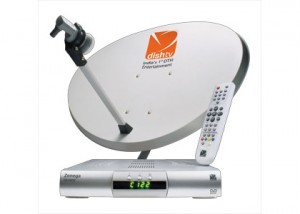The battle for eyeballs begins
With the imminent introduction of DTH, TV viewers will soon be spoiled for choice
 With the government on the lookout to license direct to home (DTH) TV operators in the country, cable operators are worried that they might go under if authorities do not create a level playing field.
With the government on the lookout to license direct to home (DTH) TV operators in the country, cable operators are worried that they might go under if authorities do not create a level playing field.
Most are concerned that, if DTH comes in formally without a proper legal mechanism and content restriction, which they face, it would kill cable.
“Recently Bhutan infocom and media authority (BICMA) restricted us from airing about 20 channels. DTH users, on the other hand, would have access to hundreds of channels,” said the manager of Norling cable service in Thimphu, Kinzang Wangchuk. “It would be difficult to retain customers if the authorities don’t provide a level playing field.”
More and more Bhutanese have opted for DTH, although illegal, because it has more channels and better picture quality than cable. Cable operators say that more than 800 homes in Thimphu alone have DTH.
There were 52 cable TV operators in the country as of 2008. They were among the top ten highest revenue contributors to the government in terms of entertainment tax.
Out of every Nu 300 collected from a cable subscriber, Nu 69 is paid to the government. They said that cable TV operators paid at least Nu 1.5 to Nu 1.6 mn a month to the government.
“What’s happening today is that people are buying dish, using fictitious Indian names in the border town, and paying a monthly charge of about Nu 200,” said the manager. “DTH users, at the moment, don’t contribute a single chhetrum to the government as tax nor is their content monitored. While, on the other hand, cable operators are subject to a number of restrictions and monitoring.”
The manager said that cable operators would not be affected by the DTH entry, only if both operators face the same regulations and monitoring in terms of content and list of channels.
Former secretary of the APCO (association of private cable operators), Kinley Dorji, said that cable operators would have some advantages over DTH. “The local cable operators, if allowed to air the same popular channels as on DTH, will have the advantage of an already established network with subscribers,” he said. “Most of the local cable operators also have the confidence of the viewers and provide local content.”
Another local cable TV operator said that DTH has an advantage of serving those in remote or hilly areas where cable operators have not been able to penetrate or provide strong signals. It is not profitable for cable TV operators to set up operations at remote areas.
“But all local operators air local channels with school concerts, music videos and advertisements, which has gained a lot of popularity,” he said. “DTH won’t be able to provide that.” A Thimphu resident, residing almost 10 km away from town, said he recently started using DTH TV after years of complaining to cable operators about weak signals. “The beauty of DTH is the much smaller size of the dish and the quality and quantity of channels,” he said.
BICMA official, Jigme Wangdi, said the letter sent to cable TV operators recently to refrain from airing the additional 24 channels is just a temporary measure. “Cable operators were airing 40 approved channels and they’ve been asked to get approval before airing the additional channels,” he said. “They need to give us details on where and how the content was brought in, for us to understand whether it’s a pay or a free channel that was received legally or illegally.”
He said that, with DTH TV to formally enter, the ceiling of 40 cable channels has been removed. “Cable operators can add channels, but only after getting the authority’s approval,” he said.
APCO’s former secretary Kinley Dorji said that there should be a level playing field for both DTH TV and cable TV, so that viewers can eventually benefit through better services.
Kuensel on December 30, 2009
